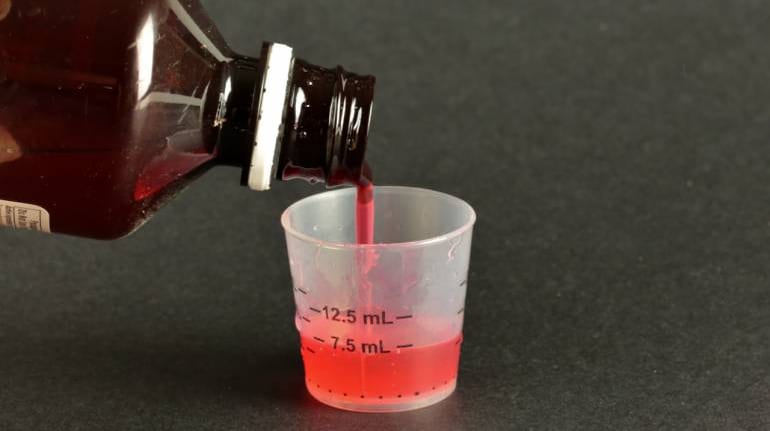



On December 27, the Union health ministry announced that the country’s apex drug regulator, along with state drug control administrations, has started conducting inspections of drug manufacturing units.
“An action plan for nationwide inspection of manufacturing units which are identified to be at the risk of manufacturing Not of Standard Quality (NSQ)/adulterated/spurious drugs was made prior to carrying out of inspections,” said the ministry.
By then, Uzbekistan had reached out to India with a complaint that it had found contaminants in a cough syrup supplied by Noida-based Marion Biotech that may have killed 18 children, as suggested by initial laboratory investigations.
The ministry, later that night, got the Noida premises of the drug maker raided by officials from the Central Drugs Standards Control Organisation and Uttar Pradesh drug administration, to collect control samples of batches of the cough syrup named by the central Asian country.
However, it was only after a press release by Uzbekistan’s health ministry on December 28 that the media got a whiff of the matter.
Slew of similar episodesThis latest incident has come close on the heels of another tragic episode, involving generic drug maker Maiden Pharmaceuticals, which was named by the World Health Organization as the supplier of contaminated cough syrups to The Gambia that it said may have killed 70 children there.
In mid-December, India’s CDSCO wrote to the WHO saying that it had not found any contamination in control samples of the cough syrups supplied to Gambia. However, it had earlier found serious violations in Good Manufacturing Practices (GMP) by the drugmaker, following which the production of medicines was stopped at its plants.
In the case of Marion Biotech, too, the authorities have ordered a complete halt in production of medicines after finding GMP violations, even though the details of the inspection are yet to be made public and the batch testing report is yet to be released.
Several other drugmakers, meanwhile, face inspections as part of a nationwide exercise launched by the government, which is on the backfoot after multiple instances of substandard or adulterated drugs being exported and sold within India came to light.
In late 2019, 12 kids in Jammu had died after consuming adulterated cough syrup made by a drugmaker based in Himachal Pradesh. More than three years later, a police investigation in the case is still underway.
Transparency is criticalBut experts say that for the exercise to have positive outcomes, transparency and a will to fix wrongs is a must.
Also read I How Maiden and other Indian pharma firms exploited WHO certification process
They also say that if dereliction is found, these inspections may lead to some punishments.
“That may deter manufacturers who are more conscientious,” said Chinu Srinivasan, a pharmaceutical expert associated with the All India Drug Action Network, a patient rights group.
“Others may exhibit quality-conscious behaviour for some time and then it may be back to casual and careless procedures as before,” he added. “And it is necessary for inspectors themselves to be incorruptible. The system, from top to bottom, must be impossible to be gamed.”
Dinesh Thakur, a public health activist who recently co-authored the book The Truth Pill, which highlights the chinks in India’s drug regulatory system, said it is impossible to say whether inspections will prevent future incidents of drug contamination without understanding how the joint inspection will be conducted and whether the results of the inspection will be made public.
“What is the basis of the inspection? Is it Schedule M (GMP requirement laid down under India’s Drugs & Cosmetics Act), WHO GMP, US Food and Drug Administration GMP? Which one? Also, what is the trigger for the inspection? Have they done a risk analysis of this company before? What is the outcome of such an analysis?” he asked.
Thakur added that the findings of such inspections must be published within 30 days of inspection.
CM Gulhati, a veteran pharmaceutical expert, also said that unless the results of the CDSCO investigations are known, it may not be possible to suggest remedial action.
However, in the episode involving Marion Biotech, it may be too early to comment, he stressed. “The information on the death of children in Uzbekistan is sketchy,” Gulhati said. “For instance, was cough syrup prescribed? What was the illness from which the children were suffering? Their ages? The doses of cough syrup? What other medicines were being given to the children who died? What were the immediate causes of death? Unless much more is known it is unscientific to come to any conclusion,” he added.
What is known is that Uzbekistan does not have a drug authority and presumably there is little or no control on pharmaceuticals being imported or even consumed, Gulhati noted.
‘Issue of GMP violation and contamination separate’In the aftermath of the Gambia case, the Union government had set up a four-member panel to investigate and advise the CDSCO on the next course of action.
However, in the absence of a causality assessment report, establishing that the Gambian children died due to adulterated cough syrups, either from the WHO or the Gambian government, the panel is yet to submit a final report.
Also read I Why Indian regulators fail to prevent fatal lapses in drug manufacturing
But a member of the committee told Moneycontrol that the issue of GMP violations and contamination in drugs should not be seen together. “GMP involves a whole lot of documentation and maintaining records meticulously, and many companies are faulty on that. But contamination is a very serious offense and can be assessed only on a case to case basis,” said the member.
Discover the latest Business News, Sensex, and Nifty updates. Obtain Personal Finance insights, tax queries, and expert opinions on Moneycontrol or download the Moneycontrol App to stay updated!
Find the best of Al News in one place, specially curated for you every weekend.
Stay on top of the latest tech trends and biggest startup news.